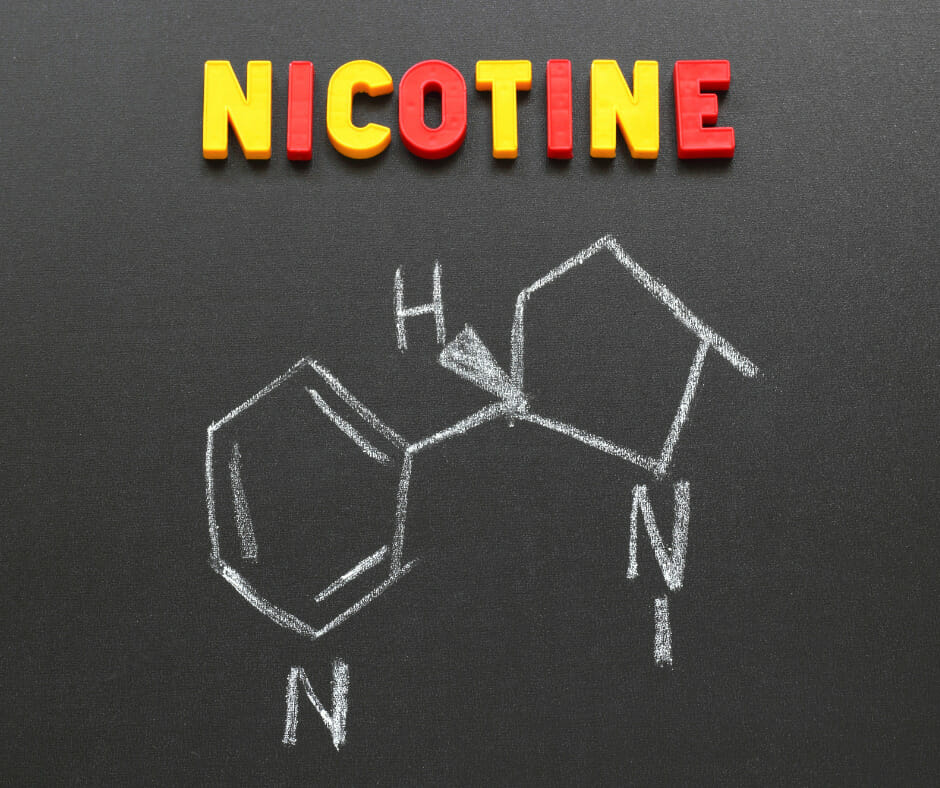Nicotine addiction is a widespread problem affecting millions of individuals globally. Despite its well-known negative effects on health, many people find it difficult to quit nicotine and break free from its grasp.
With the rise of electronic cigarettes and other nicotine delivery systems, the number of individuals struggling with nicotine addiction is only increasing. However, there is hope for those seeking to overcome their dependence on nicotine.
Rehab services offer a range of effective treatments and support systems that can help individuals break free from their addiction and regain control over their lives. Lantana Recovery offers rehab services for people suffering from nicotine addiction.
In this article, we will explore the various nicotine addiction treatment options available and how rehab services can help individuals overcome their nicotine dependence.

What is Nicotine
Nicotine is a highly addictive chemical compound found in tobacco products such as cigarettes, cigars, and chewing tobacco. It is a stimulant that affects the brain and nervous system, producing feelings of pleasure and relaxation.
Despite its pleasurable effects, nicotine is also responsible for numerous negative health consequences, including increased risk of heart disease, cancer, and respiratory problems. The widespread use of nicotine has led to a significant public health issue, with millions of individuals globally struggling with nicotine addiction.
In fact, nicotine addiction is one of the leading preventable causes of death worldwide, and is a major contributor to the global burden of disease.
Treatment Options for Nicotine Addiction
Nicotine addiction is a serious problem affecting millions of individuals worldwide. Despite its negative health effects, quitting nicotine can be difficult due to its highly addictive nature. There is hope for those seeking to overcome their nicotine dependence, as there are several effective treatment options available — but you should know that insurance might not be willing to treat nicotine addiction alone.
Inpatient Rehab
Inpatient rehab offers a holistic treatment solution for those grappling with nicotine addiction. It’s worth noting that if you’re counting on insurance to fund your rehab, many insurers won’t cover treatment for only nicotine addiction. However, if there’s a co-existing addiction, many insurance policies might prioritize the secondary addiction, enabling coverage. Inpatient facilities ensure a secure and nurturing setting where individuals can detoxify and break free from their nicotine dependency.
During inpatient treatment, individuals receive around-the-clock care and support from trained professionals. Inpatient rehab also provides a structured daily schedule of activities, including therapy sessions, group support, and educational classes.
This intensive approach to treatment is effective for those who need a break from their everyday life and want to focus solely on their recovery.
Partial Hospitalization Rehab
Partial hospitalization rehab is a less intensive alternative to inpatient rehab, but still provides a structured program of treatment for those dealing with nicotine addiction. The same limitations for inpatient rehab apply to partial hospitalization rehab for nicotine addiction coverage. Individuals attend treatment for several hours each day, but return home each night. The patient usually has to visit the treatment facility only for 3-5 days a week.
Partial hospitalization rehab offers a good balance between the intensive support of inpatient rehab and the flexibility of outpatient rehab. It is ideal for individuals who need a structured program of treatment but cannot commit to full-time inpatient rehab.
Intensive Outpatient Rehab
Intensive outpatient rehab is a treatment option for individuals who do not require the level of care provided by inpatient or partial hospitalization rehab. Individuals attend treatment for several hours each day, but are free to return home in the evening. However, it’s worth noting that same limitations for inpatient rehab apply to intensive outpatient rehab for nicotine addiction coverage.
Intensive outpatient rehab provides a structured program of treatment, including therapy sessions and group support, but allows individuals to continue their daily activities and responsibilities. This treatment option is ideal for individuals who have a strong support system in place and are committed to their recovery.
Lantana Recovery offers outpatient addiction treatment services for nicotine addiction.
Outpatient Rehab
Outpatient rehab is a less intensive treatment option for individuals struggling with nicotine addiction. Individuals attend treatment for several hours each week, but are free to continue their daily activities and responsibilities. Again, it’s worth noting that same limitations for inpatient rehab apply to outpatient rehab for nicotine addiction coverage.
Outpatient rehab provides a structured program of treatment, including therapy sessions and group support, but requires a strong commitment from the individual to their recovery. This treatment option is ideal for individuals who are in the early stage of their addictions or need support maintaining their sobriety after an intensive inpatient program.
Nicotine: Dependance vs. Addiction
Nicotine dependance refers to the physical adaptation of the body to nicotine, resulting in withdrawal symptoms when the nicotine is discontinued. Dependence on a substance such as nicotine can develop as a result of continued use over time.
Nicotine addiction, on the other hand, is a complex condition characterized by compulsive drug seeking and use despite harmful consequences. Drug addiction involves not only physical dependence, but also changes in the brain’s structure and function that lead to compulsive drug use.
In summary, dependence on a substance such as nicotine is a physical adaptation of the body to its presence, while addiction involves a compulsive need to use the substance despite negative consequences. Dependence can develop as a result of continued use and can lead to addiction if the individual experiences changes in the brain that lead to compulsive drug use.
Nicotine Addiction Symptoms
Nicotine addiction can manifest itself in both physical and psychological symptoms including:
Physical Symptoms
Here some physical signs of nicotine addiction:
- Headaches, irritability, and restlessness when trying to quit using nicotine.
- Increased heart rate and blood pressure
- Decreased appetite
- Trouble sleeping or insomnia
- Nausea or upset stomach
- Fatigue or weakness
- Muscle aches or pains
- Sweating or increased body temperature
- Trembling or shaking
- Coughing
Psychological Symptoms
Now let’s talk about some mental signs of nicotine addiction such as:
- Cravings for nicotine
- Anxiety or nervousness
- Depression or sadness
- Preoccupation with using nicotine
- Difficulty concentrating or focusing
- Mood swings or irritability
- Restlessness or agitation
- Feelings of hopelessness or despair
- Difficulty controlling behavior related to nicotine use
- Increased stress levels
At Lantana Recovery, we can help you with nicotine addiction diagnosis.
Diagnosing Nicotine Addiction
Diagnosing nicotine addiction in friends or family members can be challenging, but there are some signs to look for. If you suspect someone you know may be addicted to nicotine, it may be helpful to look for the following signs:
- Increased frequency and amount of nicotine use: If someone you know has been using nicotine more often or in larger amounts, this may be a sign of addiction.
- Difficulty quitting or controlling nicotine use: If the person has tried to quit or reduce their nicotine use but has been unable to do so, this may be a sign of addiction.
- Withdrawal symptoms: If the person experiences physical or psychological symptoms such as headaches, irritability, anxiety, or cravings when they try to quit or reduce their nicotine use, this may be a sign of addiction.
- Changes in behavior or daily routines: If the person has made changes to their schedule or daily routines in order to accommodate their nicotine use, this may be a sign of addiction.
- Neglecting responsibilities: If the person is neglecting work, school, or other responsibilities in order to use nicotine, this may be a sign of addiction.
- Using nicotine in dangerous situations: If the person is using nicotine in situations where it is not safe, such as while driving or operating heavy machinery, this may be a sign of addiction.
If you suspect that someone you know is addicted to nicotine, it may be helpful to have a conversation with them and encourage them to seek help from a healthcare professional. A healthcare professional can perform a comprehensive evaluation and provide a proper diagnosis, as well as recommend appropriate treatment options.

Nicotine Addiction Treatment Options in South Carolina
For individuals in South Carolina struggling with nicotine addiction, there are a variety of treatment options available. Whether you’re seeking help for yourself or for a loved one, it is important to understand the various options for nicotine addiction treatment and to find the one that is right for you.
Nicotine Rehab in Charleston
Charleston is home to a number of nicotine rehab facilities like Lantana Recovery Rehab that offer comprehensive treatment for nicotine addiction. These rehab facilities in Charleston offer a range of services, including inpatient and outpatient treatment, counseling, and support groups.
Patients receive individualized care and support as they work to overcome their nicotine addiction and build a healthier, nicotine-free life.
Tobacco Treatment for Greenville Residents
There are several tobacco treatment options available in Greenville, including nicotine replacement therapy (NRT), behavioral counseling, and support groups. NRT involves using products such as nicotine gum or patches to help reduce nicotine cravings and withdrawal symptoms.
Behavioral counseling provides patients with the tools and skills they need to quit using nicotine and stay quit. Support groups provide a safe and supportive environment for patients to share their experiences and receive encouragement and support from others who understand what they’re going through. People looking for nicotine addiction treatment in Greenville can speak with our Greenville outreach team to get outpatient treatment services at our Charleston facility.
Nicotine Drug Treatment Services Extended to Columbia
Columbia residents can access a range of nicotine drug treatment services, including inpatient and outpatient treatment, counseling, and support groups. Inpatient treatment provides patients with a safe and supportive environment in which to focus on their recovery.
Outpatient drug treatment programs in Columbia allow patients to receive care and support while living at home. Counseling and support groups provide patients with the tools and skills they need to quit using nicotine and stay quit. If you are searching for a nicotine drug treatment center in Columbia, our team can help with our rehab center in Charleston, SC.

Nicotine Addiction: Long Term Effects
Nicotine addiction can have significant long-term effects on an individual’s health and well-being. Here are some of the most common long-term effects of nicotine addiction:
- Cardiovascular disease: Nicotine is a highly addictive stimulant that can increase heart rate and blood pressure, and long-term use can lead to cardiovascular disease, including heart attacks and stroke.
- Respiratory problems: Nicotine is inhaled into the lungs and can cause lung damage, including chronic bronchitis and emphysema.
- Cancer: Nicotine is a carcinogenic substance, and long-term use can increase the risk of developing various types of cancer, including lung, throat, and bladder cancer.
- Decreased fertility: Nicotine can decrease fertility in both men and women, making it more difficult to conceive.
- Impotence and sexual dysfunction: Nicotine can cause impotence and sexual dysfunction in men and may also negatively impact sexual function in women.
- Gastrointestinal problems: Nicotine can cause gastrointestinal problems, such as acid reflux and stomach ulcers.
- Cognitive decline: Long-term nicotine use can lead to cognitive decline, including memory loss and decreased ability to concentrate.
- Mental health problems: Nicotine can increase the risk of developing mental health problems, such as depression and anxiety.
Nicotine Treatment FAQs
Can I go to detox for Nicotine addiction?
Yes, you can go to detox for nicotine addiction. Detox is a process that helps individuals overcome substance dependence and withdrawal symptoms, including those associated with nicotine addiction.
Can I attend inpatient rehab for Nicotine addiction?
Yes, you can attend inpatient rehab for nicotine addiction. Inpatient rehab is a highly structured treatment program that provides around-the-clock care and support to individuals with substance use disorders, including nicotine addiction.
Can I enroll in outpatient rehab for Nicotine addiction?
Yes, you can enroll in outpatient rehab for nicotine addiction. Outpatient rehab is a less intensive form of treatment that allows individuals to receive support and therapy while continuing to live at home and attend to their daily responsibilities.
Can I Overdose on Nicotine?
Yes, it is possible to overdose on nicotine. Nicotine is a highly toxic substance that can be harmful or even fatal if ingested in large amounts. An overdose of nicotine can cause symptoms such as rapid heartbeat, nausea and vomiting, seizures, and unconsciousness.
Final Thoughts on Nicotine Addiction Treatment
In conclusion, there are several effective treatment options available for individuals struggling with nicotine addiction. Whether it is inpatient rehab, partial hospitalization rehab, intensive outpatient rehab, or outpatient rehab, there is a treatment option that can help individuals overcome their dependence on nicotine and regain control over their lives.
However, which is the most suitable treatment program can vary for each individual and can only be decided by a certified medical professional specializing in treating addiction.If you or someone you know is struggling with nicotine addiction, seeking treatment is the first step towards a healthier, nicotine-free future.





